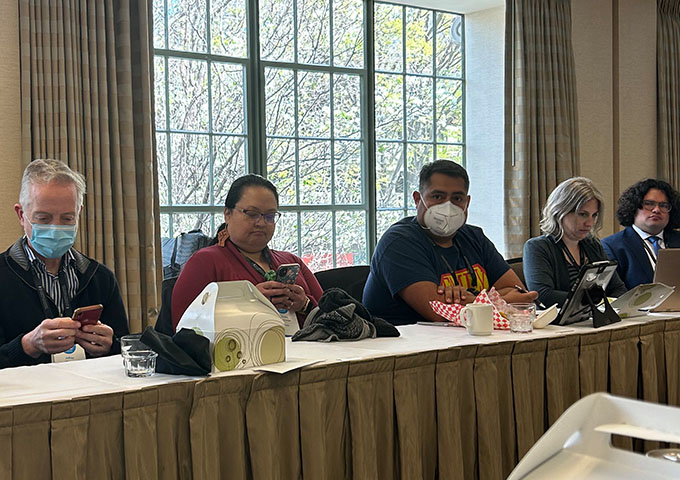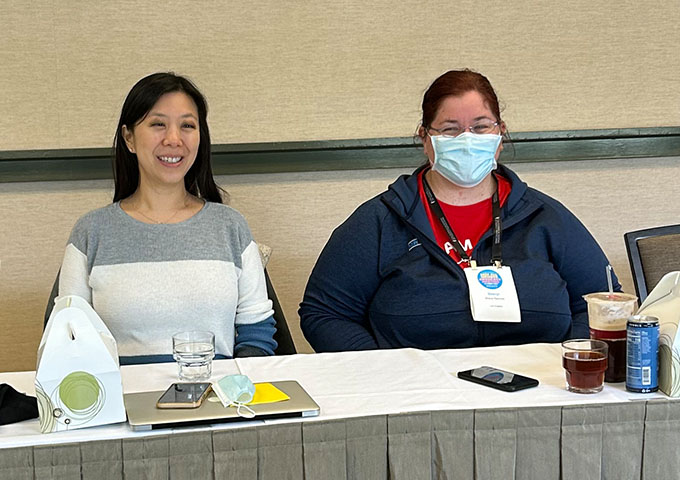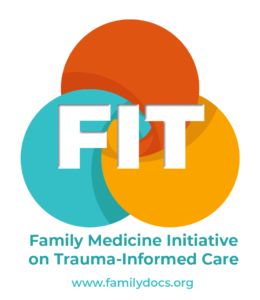Wesley G. Bradford, MD, MPH
CAFP Helps Secure More than $23 Million for FMRPs
At the recent Song-Brown Physician Training Program funding meeting, California family medicine residency programs (FMRPs) received more than $23 million (77 percent) of the $30 million disbursed to primary care residency programs as part of the first year of a three-year $100 million State Budget investment. CAFP and its advocacy partners helped secure the State Budget appropriation in 2016 and helped defend it in 2017, with the first grants to be delivered in 2018. The funding meeting was not without it challenges. Discrepancies in application design and scoring methodology left several worthy residency programs with incorrect scores. CAFP and the CAFP Residency Network (CRN) will look to correct those discrepancies in 2018 and help the California Workforce Policy Commission (the group that awards Song-Brown grants) improve the application and scoring process to prevent discrepancies in future years.
Governor’s Proposed 2018-19 Budget a Health Care Win
For the first time in his nearly eight years as Governor, Jerry Brown’s January budget proposal contains no major negative consequences for family medicine’s priorities. Of note, the three-year $100 million investment in the Song-Brown Primary Care Physician Training Program continues with its second installment of $33 million in 2018. Last year’s successful effort to prevent elimination of this funding appears to be a lasting victory. In addition, the proposal contains $233 million (on top of the more than $350 million increase in 2017) for increased payments to Medi-Cal providers. This increase results from passage of the tobacco tax initiative of 2016 (Prop 56), which authorized allocation of 80 percent of the revenue generated to Medi-Cal provider payment increases. When fully implemented, the revenue should reach $800 million, but now stands at $680 million.
Federal Tax Bill Passes and Will Affect Family Physicians
President Trump signed a major tax bill into law that mainly serves to reduce the corporate tax rate from 35 percent to 21 percent. The new tax rates and changes are estimated to open a $1.5-trillion hole in the federal deficit and are likely to trigger reductions to Medicare and Medicaid because of a 2010 law, known as Pay as You Go, which requires cuts to certain federal programs if Congress passes legislation that increases the federal deficit. Congressional leaders have already begun signaling they hope to delay those cuts until after the 2018 election. A new analysis also projects that the bill will result in more than 1.8 million Californians becoming uninsured by 2025. The bill left intact three provisions in the Internal Revenue Code that CAFP and AAFP fought to preserve: the student loan interest deduction, the tax-free status of graduate-school tuition waivers and the deduction for medical expenses. The bill, however, removes the Affordable Care Act’s individual mandate to purchase insurance, an action that CAFP and AAFP opposed. The elimination of the mandate will go into effect January 1, 2019. Republican leaders also are considering elimination of the employer mandate, which could have far-reaching consequences for rates of uninsured. California legislative leaders are already considering ways to mitigate damaged caused by the tax bill, including the adoption of a state-level individual mandate to purchase insurance. Some legislators are also considering ways to maintain State and Local Tax (SALT) deduction, the repeal of which hurts California more than any other state and removes critical funds for local infrastructure, schools and health care.
Deadly Flu Season Continues
The flu season has been picking up dramatically in recent weeks, with the flu vaccine effectiveness (for the H3N2 strain) estimated at only 30 percent this year although it can still reduce severity. Vaccinations — better late than never; it takes ~2 weeks after vaccination for full immune response. Flu medications have been reported in short supply. Serious flu-related complications are a higher risk in pregnant women, small children, elderly, and with diagnoses such as asthma, diabetes, & heart disease.





























